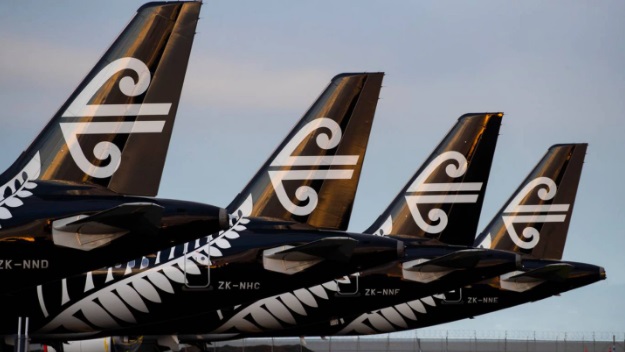
Colleagues of the pair told The New Zealand Herald they were upset they weren't informed of the infection, which happened when the country was battling to contain community transmission last year.
When asked why the national carrier declined to tell other employees operating from the Christchurch base about the cases, an Air New Zealand spokesperson said one of the crew members specifically asked for the information to remain confidential between them and their manager.
"Air New Zealand followed the Ministry of Health's processes for identifying close and casual contacts, and any employees who fell into this category were advised at the time and tested."
An employee working at the Christchurch base spoke to the Herald on the condition of anonymity and said that they were upset at the company for not informing them of the positive cases.
WorkSafe told the Herald it was not notified of the incident.
Another worker, who also did not want to be named, said they felt that Air New Zealand did not care about the workers' feelings.
"I felt like the trust had been betrayed."
They said it was concerning they had to find out through a friend, even though they may have had their health and safety impacted.
"I don't think it's acceptable," they said.
Since the pandemic began, the company said there had not been a single case of transmission from passenger to crew on any Air New Zealand flight.
"We're unable to provide comment on individual employees, but we have a number of processes in place to protect customers, employees and New Zealand from Covid-19 which have evolved over time as we've learned more about the virus."
The Ministry of Health said it was unable to comment "on individual work situations".
"However, if a person has a positive Covid-19 test, they are interviewed to find out if and when they had symptoms, and where they have been, and who they have been with, while they were considered to be infectious," the ministry said.
"If a person was not considered to have been infectious while at work, then there may not be a need to inform work colleagues (unless they may also have been co-exposed).
"If they were considered to have been infectious while at work, an assessment would be undertaken to determine the type of contact that they had with colleagues, and what advice should be provided to colleagues (for example testing and isolation requirements as needed).
Last week the Herald also revealed an Air New Zealand plane that had dropped off international returnees to enter managed isolation then carried domestic passengers without a deep clean in between.
In a statement, the company confirmed that "a number" of months ago an aircraft that had operated an MIQ charter service was inadvertently scheduled to continue operating instead of returning to Auckland to be cleaned.
Air New Zealand said it follows the advice of the Ministry of Transport, Ministry of Health and our own aviation medical team to keep people safe.
"This includes the mandatory use of masks on flights for customers, the provision of PPE for aircrew and having hand sanitiser readily available on board for employees and customers."












